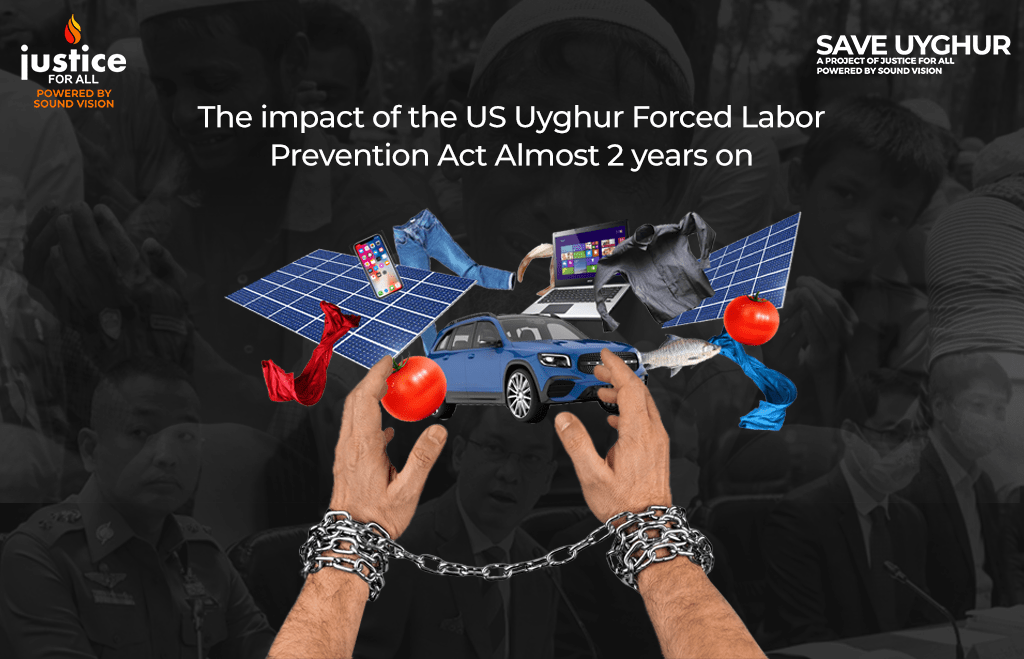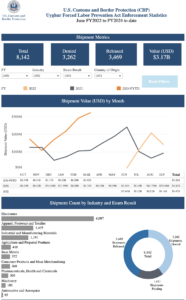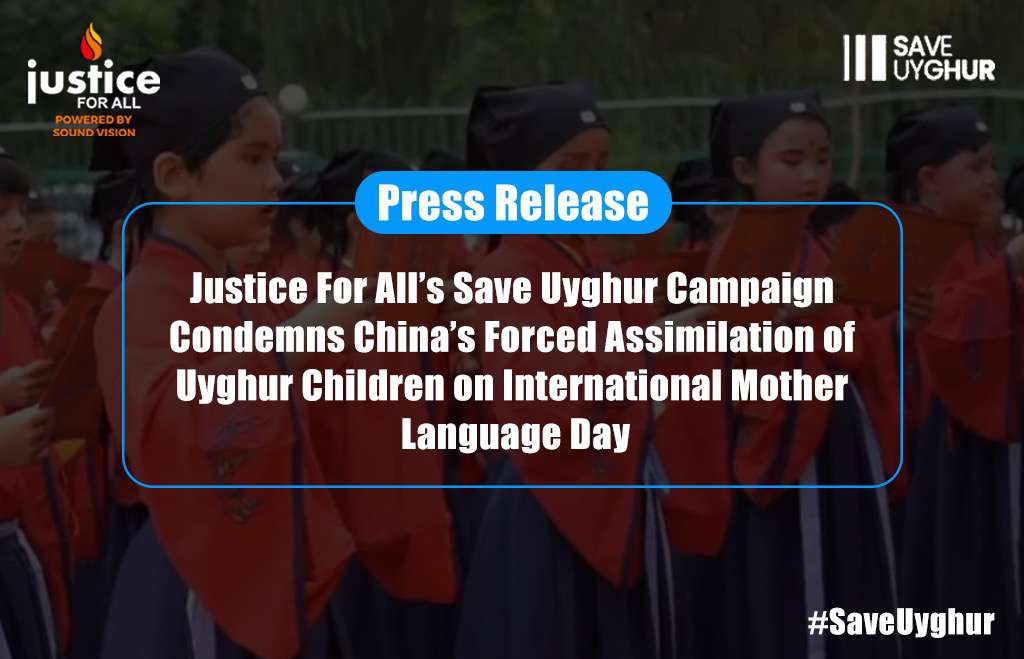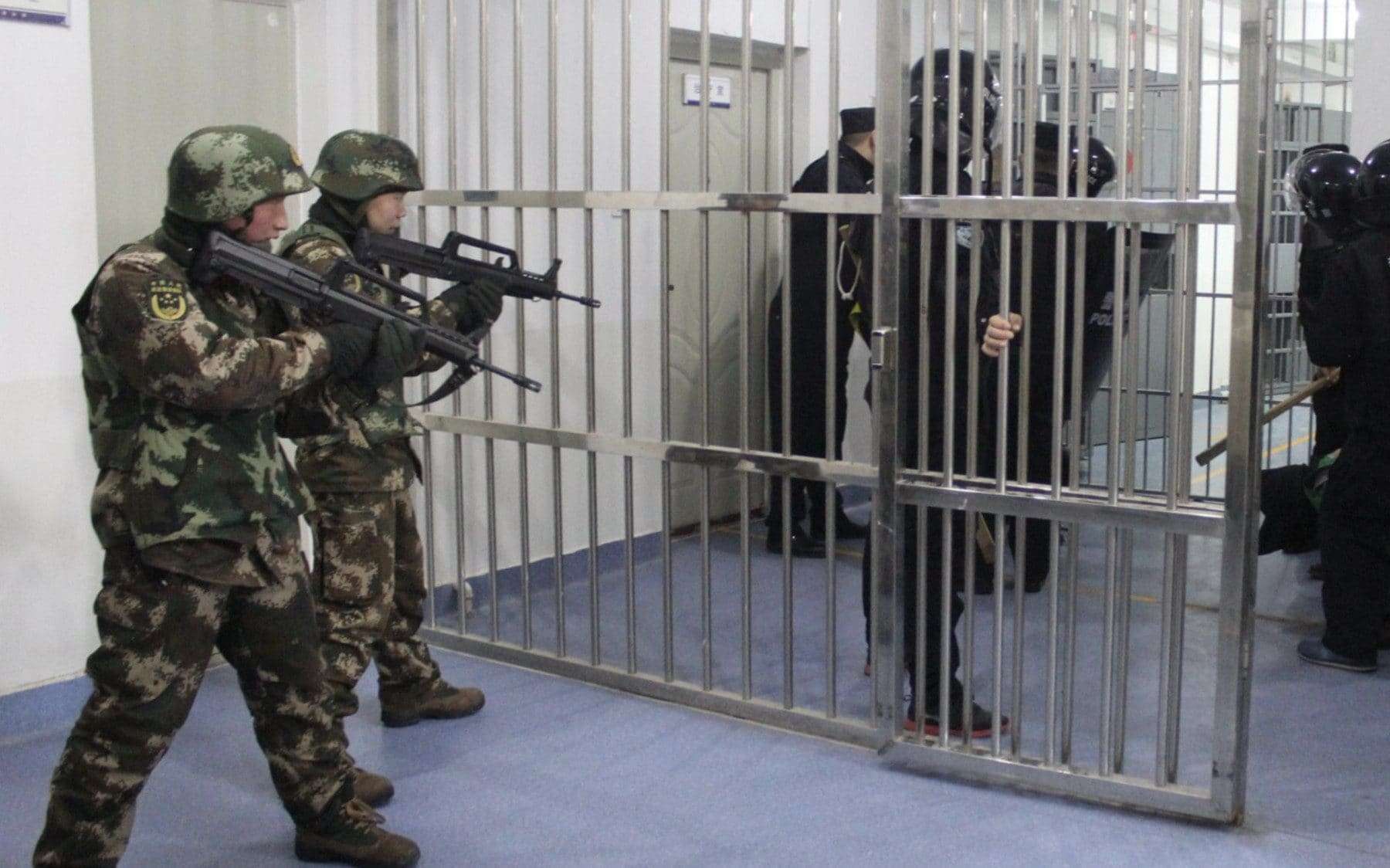Washington, D.C. — February 21, 2025 For Immediate Release Contact: Hena Zuberi hena@justiceforall.org (202) 922-5878…
The impact of the US Uyghur Forced Labor Prevention Act Almost 2 years on

This June 21st will mark the second anniversary of the Uyghur Forced Labor Prevention Act (UFLPA) enforcement in the United States. This crucial law aims to combat corporate exploitation of Uyghur forced labor by prohibiting the import of goods produced using such labor. The UFLPA is a significant step towards disrupting the economic gains made by the Chinese government and complicit companies through this forced labor practice. It sends a strong message that US companies and consumers are not willing to profit from the persecution of Uyghur people, while also signaling to the Chinese government that such human rights violations will not be tolerated.
In light of this milestone, Justice For All (JFA) reflects on the impact of the UFLPA over the past almost two years and observes progress in other nations’ efforts to address the trade of goods sourced from forced labor. Justice For All praises the positive aspects of the law while highlighting concerns about potential re-exportation of goods to evade its regulations. As we continue to monitor the effects of the UFLPA and global responses to combat forced labor, JFA reaffirms its commitment to advocating for justice and human rights for the Uyghur people.
A quick reminder of what the UFLPA is:
The UFLPA introduces a concept known as a “rebuttable presumption” regarding products originating from Chinese-occupied East Turkistan. This means that US Customs Authorities now operate under the assumption that all products manufactured in East Turkistan or containing materials (such as cotton or polysilicon used in solar panels) sourced from East Turkistan involve forced labor.
Ensuring that supply chains are free from Uyghur forced labor necessitates completely severing ties with the region. Conducting due diligence in East Turkistan is unfeasible due to the pervasive surveillance and intimidation tactics employed by Chinese authorities to suppress the population. Consequently, the UFLPA’s stringent ban on goods made with Uyghur forced labor effectively prohibits all imports from East Turkistan unless importers can provide compelling evidence demonstrating the absence of forced labor throughout the production process.
It is safe to say that the UFLPA is often considered one of the most powerful laws against forced labor introduced in recent times.
The impact of the UFLPA so far
The UFLPA has had a significant impact on the enforcement activities of the U.S. Customs and Border Protection (CBP). To date, CBP has conducted over 8,000 detentions under the UFLPA, with a total value exceeding $3.1 billion, and indications suggest that enforcement efforts will only intensify. To better comprehend CBP’s aggressive actions in enforcing the UFLPA, it is crucial to understand the legislative requirements established by Congress and the compliance expectations imposed on importers by CBP when dealing with products at a high risk of being linked to forced labor violations.
Here are the latest statistics regarding UFLPA enforcement as of 4/1/2024:
 Disclaimer & Data Source: Statistical information is subject to change due to corrections or additional information. Data is provided by the Forced Labor Division and is current as of 4/1/2024.
Disclaimer & Data Source: Statistical information is subject to change due to corrections or additional information. Data is provided by the Forced Labor Division and is current as of 4/1/2024.
Requirements of the UFLPA
The UFLPA restricts the import of goods that are presumed to be the result of forced labor and prohibits their entry into the United States. These goods include:
– Products entirely or partially mined, manufactured, or produced in East Turkistan
– Items created by businesses that collaborate with the Chinese-occupying regional government in activities involving forced labor, such as recruitment, transportation, and harboring of individuals.
– Exported goods to the U.S. that are either wholly or partially made in East Turkistan or manufactured by entities working with the regional government to facilitate forced labor outside East Turkistan.
– Commodities sourced from companies obtaining materials from East Turkistan.
– Products sourced from companies obtaining materials from individuals working with the Chinese-occupying regional government or the Xinjiang Production and Construction Corps (XPCC) as part of forced labor initiatives like poverty alleviation programs.
– Items related to businesses listed on the UFLPA Entity List.
It’s important to note that this presumption also applies to goods manufactured by companies located outside East Turkistan and China but sourcing materials from or producing within East Turkistan. The UFLPA Entity List, comprising companies violating UFLPA regulations or engaged in related actions, can be accessed on the Department of Homeland Security (DHS) UFLPA Entity List page, updated regularly.
To challenge the presumption of forced labor under the UFLPA, importers must demonstrate to CBP that:
– The goods were not produced using convict, forced, or indentured labor.
– They have met diligence requirements.
– They have cooperated with CBP inquiries as needed.
Improvement in Enforcing the UFLPA:
While $2.6 billion may seem significant, it represents only a fraction of the global trade in goods derived from the exploitation of Uyghurs and other Turkic and Muslim-majority groups. Our partners in civil society within the United States are advocating for the government to enhance the implementation of this critical legislation. This advocacy includes:
- Broadening the scope of enforcement to include additional industries.
- Expanding the list of manufacturers involved in Uyghur forced labor.
- Targeting indirect import channels.
- Preventing companies from evading regulations by utilizing small-scale shipments for the transportation of complicit goods across borders.
Expanding the Focus of Enforcement:
Authorities are currently prioritizing enforcement efforts in sectors such as apparel, cotton, tomatoes, and polysilicon. However, there is a need to include industries like traditional and electric vehicle materials, as well as products using PVC, which have recently shown high exposure to Uyghur forced labor.
Expanding the List of Complicit Manufacturers:
The UFLPA’s “Entity List,” which identifies companies utilizing Uyghur forced labor, is a crucial enforcement tool. Presently, only 31 Chinese entities are listed, though researchers have provided evidence to potentially add hundreds, if not thousands, more. Enhancing this list is essential to combat complicity effectively.
Targeting Indirect Import Channels:
Remnants from East Turkistan are exported to third countries for processing and manufacturing before final product export, necessitating enforcement measures for these indirect routes.
Preventing Evasion of Regulations:
Current US regulations exempt shipments under $800 from documentation requirements, enabling companies to evade scrutiny. Research indicates large corporations exploit this loophole by dividing imports into smaller shipments, creating unfair advantages against compliant businesses.
Ongoing Global Challenges with Uyghur Forced Labor:
As we mentioned previously, the effectiveness of the UFLPA may be limited on a global scale without similar actions being taken by other countries. One key loophole under the UFLPA allows importers into the US to re-export blocked products to other markets without stringent regulations in place. This situation poses a significant risk of turning other countries into outlets for goods produced through Uyghur forced labor, as many nations currently lack comparable laws.
Efforts to Address Forced Labor Imports Worldwide:
Various stakeholders, including civil society organizations, trade unions, progressive businesses, investors, and lawmakers globally, are striving to enact legislation controlling the import of products associated with forced labor. These initiatives include:
– In the EU, progress is being made towards a Forced Labor Regulation that aims to regulate both imported goods and domestically produced items made under forced labor conditions.
– Canada and Mexico are obligated under the United States-Mexico-Canada Agreement (USMCA) to implement enforcement measures against imports of goods produced through forced labor. Pressure is mounting on these nations to enforce these obligations effectively.
– Japan and Australia are seeing increased calls from parliamentarians and civil society for the implementation of import controls through legislative means and other avenues.
– In the UK, advocacy efforts are ongoing, urging the introduction of import controls as part of a comprehensive set of measures to enhance corporate accountability for forced labor practices.
Unifying Efforts: How You Can Take Action Today
Your ongoing support has been instrumental in driving our campaign forward, urging both companies and governments to take definitive action against Uyghur forced labor. Together, we have sent a clear message to our Uyghur allies that we stand firm against products manufactured under coerced labor conditions. However, our work is far from over.
It is crucial for members of the public to persist in holding companies accountable by demanding assurances that they are actively removing Uyghur forced labor from their supply chains.
Take to social media and communicate directly with your preferred companies, or offer your support to allied campaigns. Each and every action taken plays a pivotal role in our collective endeavor to eradicate forced labor. Thank you for your unwavering commitment to this cause.
Recommendations
Below, we list a variety of other measures which we believe will help enact justice.
Recommendations to Companies operating in East Turkistan
- Adopt UN Guiding Principles on Business and Human Rights, namely put in place:
- A statement of their policy commitment to respect human rights;
- A human rights due diligence process to:
- Assess their actual and potential human rights impacts;
- Integrate the findings and take action to prevent or mitigate potential impacts;
- Track their performance;
- Communicate their performance;
- Processes to provide or enable remedy to those harmed, in the event that the company causes or contributes to a negative impact.
- Annually publish and make accessible the company’s supplier list
- Commit to making supplier auditing criteria and audit outcomes publically available
- Divest from business contracts with suppliers implicated in human rights abuses.
- Shift supply sources outside China.
- Require clean supply chains as a requisite for all business with suppliers going forward.
Recommendations to Congress
- Expand the Uyghur Forced Labor Prevention Act to regulate goods from East Turkistan (XUAR) such that it applies to all other provinces in China.
- Require that American businesses publicly publish their supplier lists.
- Develop legally-binding corrective actions for companies to take when a supplier has been identified as utilizing forced labor.
- Take steps to minimize the conflicts of interest created by corporate philanthropic efforts in the human rights arena. This could mean either: form an independent body responsible for auditing companies’ supply chains and enforcing compliance measures, or establish a specific budget line for NGOs which audit the supply chains of American companies.
- Standardize the auditing procedure (onsite interviews with management and employees, supplier documentation reviews, virtual surveys, etc.), scoring systems for audit results, and corrective action plan requirements. This is to enable effective evaluation and comparison of companies’ performance.
- Adopt legislation requiring all publicly traded companies to publicly disclose their use of forced labor in supply chains in their mandatory Securities and Exchange Commission (SEC) disclosures – as was done with conflict minerals in Section 1502 of the Dodd Frank Act.
Recommendations to US Administration
- Instruct the Office of Foreign Assets Control (OFAC) to continue to place sanctions against China or against those affiliated with forced labor businesses in China.
- Urge the SEC to require publicly listed companies to disclose use of forced labor similar to Section 1502 of the Dodd Frank Act.
- In addition to marking of origin requirements, CBP should require items produced with forced labor to explicitly state as such.
Recommendations to Human Rights Organizations
- Remove the reliance on donations from companies which are audited by NGOs by seeking funding from sources that won’t result in a conflict of interest.
- Demand your company adopts the recommendations noted above.
- Push manufacturers and suppliers to submit to transparent and comprehensive audit processes.
Recommendations For United Nations
- Adopt the UN Guiding Principles on Business and Human Rights as binding international law
- Establish a UN Commission of Inquiry into human rights abuses occurring in East Turkistan (XUAR)
- Refer Chinese government officials complicit in human rights abuses to the International Criminal Court for investigation and possible prosecution
- Develop a standardized auditing procedure for manufacturing supply lines.
Sources:
[2] https://www.hrw.org/report/2024/02/01/asleep-wheel/car-companies-complicity-forced-labor-china
[3] https://www.antislavery.org/reports/uyghur-forced-labour-green-technology/


